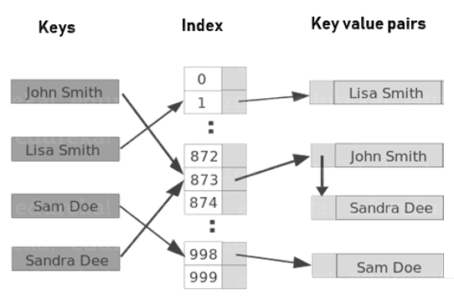Why Are Strings Immutable in Java? Enhancing Code Integrity
Why Are Strings Immutable in Java? Enhancing Code Integrity
Blog Article
What Is Immutable Strings and Just How It Works
In the world of shows, recognizing the principle of unalterable strings is critical for creating robust and secure applications. Unalterable strings refer to strings that can not be altered after they are created, making certain data honesty and predictability within the code.
The Fundamentals of Unalterable Strings
Immutable strings, as an essential concept in programs, are character series that can not be altered once they are produced. This implies that when a string is assigned a worth, that value can not be changed. In languages like Python and Java, strings are unalterable objects, leading to different implications in terms of memory monitoring and information integrity.
One of the vital benefits of immutable strings is that they supply a sense of security in data adjustment. Considering that the material of an unalterable string can not be changed, it makes certain that the initial information continues to be intact, reducing the threat of unintended modifications during program implementation (Why are strings immutable in Java?). This residential property additionally streamlines debugging processes, as developers can trust that as soon as a string is defined, its value will not be accidentally altered
Furthermore, immutable strings facilitate efficient memory use. When a brand-new string is developed based upon an existing one, rather than changing the original string, the new value is saved individually. This approach improves efficiency by lowering memory fragmentation and streamlining memory allowance processes. Overall, understanding the fundamentals of unalterable strings is essential for understanding programming principles and maximizing code efficiency.
Advantages of Unalterable Strings
Building upon the protection and performance advantages of immutable strings, their advantages reach boosting code reliability and simplifying simultaneous shows tasks. By being unalterable, strings can not be modified after production, which eliminates the risk of unintentional changes in the data they keep. This integral immutability makes sure that when a string is developed, its value continues to be consistent throughout the program's implementation, lowering the possibilities of pests caused by unforeseen alterations.
Additionally, unalterable strings add to code reliability by making it much easier to reason concerning the state of a program. Because strings can not be altered, designers can rely on that a string will constantly hold the very same worth, streamlining debugging and maintenance efforts. This predictability brings about much more reliable and steady codebases.

Application in Programming Languages
Within numerous programming languages, the incorporation of unalterable strings is a fundamental element that impacts how information is managed and manipulated within code structures. The execution of immutable strings varies throughout various programming languages, with each language supplying its own devices to support this concept.

On the other hand, languages like look at this site C and C++ do not have integrated support for immutable strings. Developers in these languages must by hand carry out immutability by implementing regulations within their code to stop straight modifications to string objects.
Ideal Practices for Working With Immutable Strings
When taking care of immutable strings in shows languages like Java and Python, adhering to best techniques makes certain effective and secure information control. One of the essential ideal techniques is to utilize StringBuilder or StringBuffer rather than straight controling strings, specifically when taking care of considerable concatenation operations. These classes supply mutable choices for string manipulation, assisting to prevent unnecessary memory allotments and improving performance.
Another finest method is to utilize string interpolation or format works supplied by the language as opposed to hand-operated concatenation. This not just enhances readability but also aids in preventing common mistakes such as unintentional string alterations. Additionally, when collaborating with delicate information such as passwords or API tricks, it is important to stay clear of keeping them as plain message in unalterable strings. Using safe storage space systems like char varieties or specialized libraries for handling sensitive information aids alleviate safety threats connected with unalterable strings.
Real-world Applications and Examples
Exploring practical implementations of unalterable strings in numerous markets exposes their considerable effect on information stability and system dependability. In the healthcare industry, unalterable strings play an important role in making certain the security and privacy of person data. By avoiding unapproved alterations to delicate details such as clinical documents and prescriptions, unalterable strings aid preserve conformity with stringent personal privacy regulations like HIPAA.
Banks additionally profit from the immutable nature of strings to boost the safety of customer information and transaction records. Unalterable strings assist avoid fraudulence and unauthorized alterations to monetary details, supplying a durable defense against cyber hazards and ensuring the depend on and self-confidence of customers.

Final Thought
In conclusion, unalterable strings are repaired and stable series of characters that supply advantages such as string security and boosted efficiency in programming. They are executed in various programs languages to ensure information honesty and safety. Ideal practices for functioning with unalterable strings consist of preventing straight alterations and making use of techniques that return brand-new string that site objects. Real-world applications of immutable strings include information security, caching, and string manipulation tasks.
Immutable strings refer to strings that can not be changed after they are created, making sure data integrity and predictability within the code. When a new string is produced based on an existing one, rather than changing the initial string, the brand-new value is stored individually.In languages like Java and Python, strings are immutable by default, indicating that when a string item is created, its value can not be changed - Why are strings immutable in Java?. Finest techniques for functioning with immutable strings include avoiding direct alterations and using approaches that return brand-new string items. Real-world applications of immutable strings consist of information file encryption, caching, and string adjustment jobs
Report this page